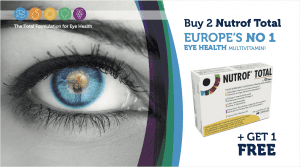
25 Feb How much Vitamin D do we need?
How much Vitamin D do we need?
Vitamin D and our requirements is very much on people’s minds due to the changes COVID has forced upon us. The enforced lockdowns has greatly affected our outdoor activities and foreign holiday plans. Ireland, with a long winter and the very variable summers are not conducive to a lot of sunlight exposure. As you are probably aware normally we manufacture Vitamin D ourselves, triggered by sunlight falling on our skin. You may recall the effect on our bones particularly in the developmental years resulting in a bone softening condition called Rickets.
Our understanding of Vitamin D has improved considerably and we are now aware Vitamin D plays a vital role in our overall health. As well as developing strong bones it is involved in the healthy function of our cardiovascular system and immune system. It affects our cell metabolism and is involved in the regulation and control of our genes to give but a few functions. Vitamin D acts more like a steroid/hormone with the ability to enter the cell nucleus and trigger reactions rather than assist reactions like other vitamins. Our lack of sunlight exposure prevents us naturally producing sufficient quantities of Vitamin D to support these functions. Natural food sources of Vitamin D are also limited to fatty wild fish (e.g. Mackerel, Herring, and olive oil).
Importantly Vitamin D plays a role in our serotonin levels, our neurotransmitter that is released during the day, involved in regulating our mood and alertness. Deficiency has been associated with depression, Parkinsons and Alzheimers onset. Our modern day lifestyle and dietary intake maybe a contributor to the fact that it is estimated 80% of people are Vitamin D deficient.
The question is often posed “how much Vitamin D do we need”? And the answer is it varies between people, e.g. depending upon age, diet, general health, obesity, etc
There are 2 variants of Vitamin that we can ingest, D2 we get from plants and D3 we get from animal byproducts. The D3 is the one we need and can utilise similarly to what we can naturally produce from the sunlight on our skin when available.
Many foods are fortified with Vitamin D. Daily levels for the average person is 40 to 60 nanogram per day, or 2000IU per day. Not everyone needs the same amount and getting your levels checked by your doctor is a good place to start. Fortunately there is no toxic levels of Vitamin D recorded so while it is a fat soluble Vitamin we simply excrete what we don’t need.
Obesity is an issue as Vitamin D gets trapped in fat cells and makes it unavailable for processing. It makes great sense to take a supplement with Vitamin D3 for all of the reasons mentioned above. Nutrof Total is the supplement we advise our patients to take, 1 capsule each morning with food, for their overall health. This supplement as many benefits for our health with a special emphasis on our eye health.
We are aware of the increased digital usage we all engage with on a daily bases and the pressure this places on our visual system has greatly increased. I wrote a previous article about oxidative stress and the effects of the blue light on the retinal function resulting in time, to free radicals being formed potentially damaging our visual function. The antioxidants in Nutrof Total specifically reduces these damage causing agents effectively removing them from the retina.

